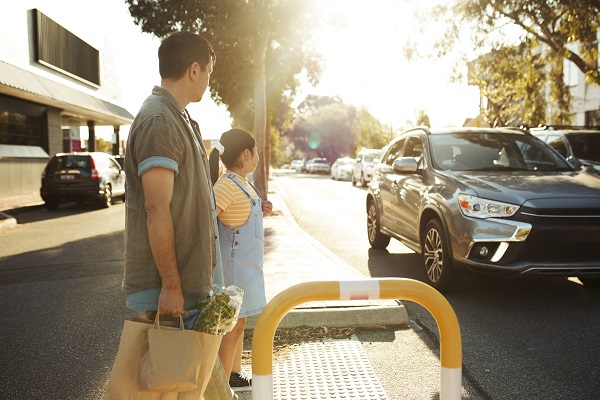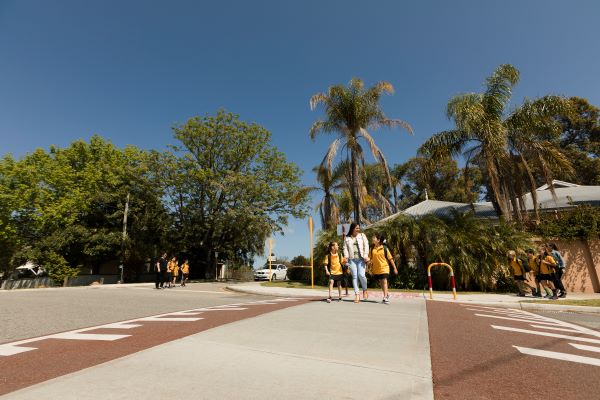Pedestrian safety
Compared to adults, children between the ages of six and 10 are four times more likely to be involved in a pedestrian collision. At this age, your child is still acquiring real world practice and their brain is developing vital cognitive and perceptual abilities required to safely cross the road including:
- choosing a safe place to cross
- peripheral vision and directional hearing
- judging gaps in traffic and speed of oncoming cars
- avoiding distraction and being attentive to their surroundings
- responding to hazards or complex traffic situations;
- judging time needed to cross the road and
- controlling impulses and risk taking.
This is why children should not cross the road independently until at least 10 years of age.

As a parent or caregiver, you play a critical role in teaching your child how to safely cross the road.
If you model good behaviour on and nearby the roads and talk about safe crossing with your child, you can support them in developing safe road crossing skills.
Small children are not readily seen by drivers, therefore it’s important to talk with your child about how to choose a safe place to cross the road and then practice. For example, you could explain that a pedestrian crossing or traffic light is far safer than crossing in between two cars.
Crossing the road
-
Hold hands with your child, especially younger children, and tell them what you’re doing as you do it.
-
Stop- select a safe place to cross the road and stop at the edge of the footpath.
-
Look- both ways for oncoming traffic (continue to look for vehicles when crossing and do not use your personal device/mobile phone).
-
Listen- can you hear anything coming?
-
Think- is it safe to cross?
-
If it is safe, then walk across the road.
Do this every time you cross. The more your child practises these skills, the safer they will be.

Additional resources:
Pedestrian Road Safety Crossword (RAC Little Legends Club)
Kidsafe Pedestrian Fact Sheet
The Smart Steps: Making safer choices (SDERA)
You may also be interested in